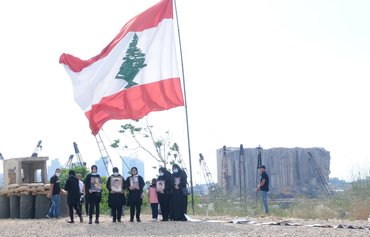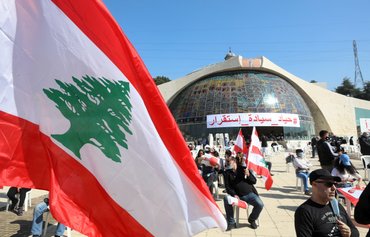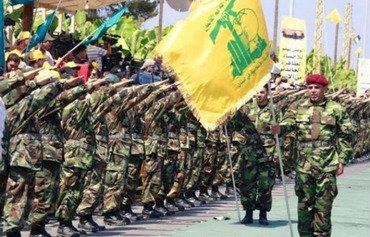A recent outbreak of violence in the southern city of Sidon has drawn attention to the proliferation of illegal weapons in non-state hands and renewed calls for Lebanon to uphold UN Security Council Resolution 1701.
Sidon erupted into chaos on the night of October 2nd, when an angry dispute between the owners of rival electricity generator companies spilled out into a gunfight in the street.
Two youth were killed and two people were wounded in the incident, and a number of angry youth torched a café before the Lebanese army intervened.
The army conducted patrols and set up mobile checkpoints in the city’s streets and neighbourhoods to apprehend the shooters and restore calm to the city.
But lawmakers warn that the incident is symptomatic of a wider problem.
"What happened was not a transient quarrel or an isolated incident," Sidon MP Bahia Hariri said, but "a blatant attack on the security of the city by a handful of armed gangsters, who are now running roughshod in Sidon’s neighbourhoods".
These gangs have been disturbing the peace, day and night, she said.
Proliferation of illegal weapons
"What happened in Sidon is in part due to the proliferation of illegitimate weapons and non-hesitance to use them by some groups that hide behind armed militias," said Lebanese MP Ammar Houry, of the Future bloc.
Following an October 4th meeting, the Future bloc "denounced the incidents and riots that tarnish the image of this peaceful city that firmly stands by the legitimate security authority", he said.
The issue of illegal acquisition and possession of personal arms in Lebanon dates back many years, but worsened during the country's civil war.
After the war, it subsided to a relative extent, but the majority of illegal weapons in Lebanon now remain in the hands of Hizbullah and the Resistance Brigades, an affiliated paramilitary group.
This has begun to cause security issues as it undermines the state security forces, sparking rising demands that Hizbullah surrender its weapons.
In its monthly forecast for October, the UN Security Council pointed to several interrelated issues, "with the main one being the weaponry that Hizbullah and other non-state actors possess and the flow of arms through Syria to Hizbullah".
This "directly hinders the ability of the government to exercise full authority over its territory", the council briefing said.
"The ongoing crisis in Syria, with Hizbullah’s involvement on the side of the government, has contributed to this flow of arms," it added. "These circumstances pose a threat to Lebanon’s sovereignty and stability and contravene its obligations under resolutions 1559 and 1701."
Asserting state authority
Lebanese security authorities must "strike with an iron fist and hand down harsh punishment to the gunmen who terrorised people and took part in the disturbances", Sidon native Hanadi Saad told Al-Mashareq.
This is necessary "to deter the recurrence of such crimes and acts", she said.
Successive Lebanese governments have sought to round up illegal weapons, but have been unable to eliminate them due to the porous border with Syria, and as some areas are inaccessible to the state authorities.
The Taif Agreement of 1989 did not address the surrender of personal weapons to the state, and stipulated the surrender of only medium and heavy weapons by the militias and a number of parties.
"UN Security Council resolutions 1559, 1680 and 1701 clearly call for the disbanding and disarmament of all Lebanese and non-Lebanese militias," Farhan Haq, deputy spokesman for the UN Secretary General said on February 14th.
"Previous reports by the Secretary General have said that militias should be disarmed and that the maintenance of arms by Hizbullah and other groups outside the control of the state restricts Lebanon’s ability to exercise its full sovereignty and authority over its territory," he said.
"We consider continued adherence to all relevant resolutions to be of vital importance to Lebanon’s stability," he added. "We encourage Lebanon to seize the current political momentum to resume discussions on a National Defence Strategy as part of a Lebanese-led and Lebanese-owned process."

![A picture taken on April 12th shows spent bullet casings on the ground at Ain al-Hilweh, Lebanon's largest Palestinian refugee camp, near Sidon, after clashes earlier in the week between an extremist group and security forces. [STRINGER/AFP]](/cnmi_am/images/2017/10/13/10007-Lebanon-sidon-bullets-600_384.jpg)






